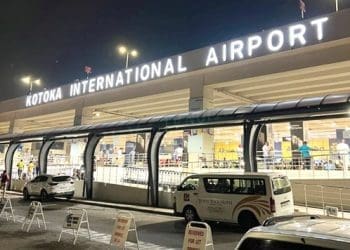The Chamber of Bulk Oil Distributors (CBOD) has issued a sharp rebuke to the National Petroleum Authority (NPA), accusing the regulator of violating a directive from the President concerning the orderly berthing and discharge of petroleum products at the Tema Port.
In a strongly worded statement released, CBOD expressed grave concern over what it described as the “persistent disruption” of the Laycan import schedule—a jointly developed framework designed to streamline fuel imports, prevent congestion at ports, and safeguard pricing and supply predictability.
At the heart of the current controversy is the NPA’s authorisation on Monday, June 23, 2025, allowing the vessel MT Marlin Ametrine to berth and discharge outside the agreed schedule.
CBOD contends that this act directly contravenes both the official Laycan schedule and a formal presidential directive issued through the Ministry of Energy and Green Transition.
President’s directive ignored, petition filed
CBOD revealed that it had filed a formal petition with the Presidency on June 12, 2025, detailing the damaging effects of the NPA’s actions on industry operations and fuel price stability.
Following the petition, the President reportedly instructed the Ministry of Energy and Green Transition to act decisively to uphold the Laycan schedule.
However, according to CBOD, the NPA proceeded to ignore this directive, thereby undermining high-level efforts to restore order and transparency in petroleum imports.
“The President subsequently instructed the Ministry of Energy and Green Transition to act immediately. However, the NPA has ignored this directive,” the Chamber stated.
Mounting costs, repeated schedule breaches
The Laycan schedule, developed through multi-stakeholder consultations, is considered critical to maintaining regulatory discipline and fuel security in the country.
But the CBOD lamented that the schedule has already been revised more than four times in the first quarter of 2025 and another seven times in the second quarter—often unilaterally by the NPA and without industry-wide consultation.
“These arbitrary changes affect up to ten cargoes per revision,” the Chamber stated, “causing cumulative delays of approximately thirty days each time.”
The financial cost of these disruptions has been substantial.
Between January and June 2025 alone, Bulk Import, Distribution, and Export Companies (BIDECs) incurred over $40 million in demurrage and related expenses, CBOD disclosed.
These costs, the Chamber warned, are not absorbed by the companies but passed on to consumers in the form of higher pump prices.
Fuel security and regulatory credibility at risk
The Chamber warned that the NPA’s most recent actions pose a direct threat to Ghana’s fuel supply chain and regulatory credibility.
“This is a serious affront to regulatory integrity and undermines the progress made in the industry in recent years,” the statement read.
“Allowing this vessel to berth outside the agreed schedule sets a dangerous precedent.”
According to CBOD, the entire scheduling system could lose legitimacy if such deviations are allowed to persist, potentially triggering chaotic fuel importation and weakening Ghana’s energy security at a time when global supply chains remain fragile.
Allegations of political interference
In a more explosive allegation, CBOD suggested that the NPA’s decision to authorise MT Marlin Ametrine may have been influenced by a group of Nigerian traders allegedly working through politically connected intermediaries in Ghana.
These traders, the Chamber claimed, were recently displaced by Nigeria’s new Dangote Oil Refinery and are now seeking alternative routes into the West African petroleum market.
CBOD described the berthing of the vessel as a “flagrant attempt to circumvent established protocols for narrow selfish interests.”
It has urged the Ministry of Energy and Green Transition to take swift and firm action to restore discipline, transparency, and order to the sector.
Call for urgent action
CBOD’s statement concludes with an appeal for the Ministry to reassert regulatory authority and ensure strict adherence to the agreed Laycan schedule, warning that continued violations will come at great cost to consumers and the country’s energy security.
“The time for decisive leadership is now,” the Chamber stressed.
“We cannot allow personal or political interests to compromise the integrity of our fuel import system.”














